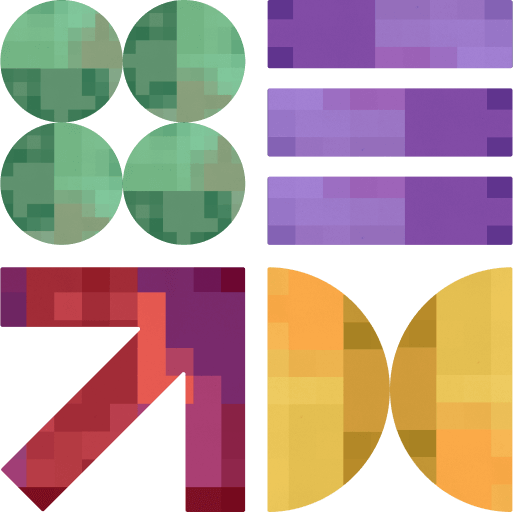Are Cross Platform App Development Services Replacing Native App Development?

There’s ongoing chatter within the mobile app development community as to whether native apps are still relevant today. Especially as businesses are under pressure to quickly (and cost-effectively) launch apps that reach a wide audience.
Some experts have even gone as far as to claim that native app is dead; long live cross platform development.
But before you get swayed by the buzz and contact cross platform app development services for your next project, let’s get three facts straight:
- Contacting a cross-platform development service provider is never a bad idea.
- Don’t rule out native apps just yet.
- You can get the best of both worlds with hybrid app development services.
Read on to discover what these mean in detail.
💡 Unsure about the best framework for mobile app development? Start by defining your top priorities such as speed to market, budget, and performance. Then shortlist frameworks that excel in those areas. For example, Flutter shines for UI consistency while React Native excels when it comes to ecosystem size. So, match a framework’s strengths to your business goals.
1) Contacting A Cross-Platform Mobile App Development Service Provider is NEVER a Bad Idea
Developers and business decision makers alike LOVE cross-platform development. And for many good reasons too –
- Faster Time to Market – With a single codebase for both iOS and Android, developers can build, test, and deploy apps faster.
- Cost Efficiency – Your organization can save time, resources, and money by avoiding the need to hire and manage separate teams for each platform. Having one team and one codebase translates into major savings.
- Consistent User Experience – Cross-platform frameworks help maintain a unified look and feel across platforms, improving brand consistency and user trust. Just make sure to choose the right one, especially when picking Flutter vs. React Native.
- Easier Maintenance and Updates – Bug fixes, feature updates, and performance improvements can be pushed to both platforms simultaneously. This further makes maintenance more efficient and less error-prone.
- Wider Reach with Less Effort – You can target both iOS and Android audiences at once, expanding your user base without doubling development effort.
- Access to Native APIs – Without sacrificing on performance, you’ll get robust plugins or bridges to access device features like GPS, camera, and biometrics.
- Ideal for MVPs and Startups – Cross platform app development services are just the thing for testing an idea or building a Minimum Viable Product (MVP). They can help you validate your concept quickly and affordably.
- Improved DevOps & CI/CD Integration – Cross-platform tools often integrate smoothly with modern CI/CD pipelines. As a result, you get to benefit from automated testing, deployment, and rollbacks.
- Rapid Prototyping and UI Flexibility – Especially with Flutter, developers can build highly customizable UIs rapidly. This advantage will come in handy if your goal is visually rich apps or frequent design iterations.
But Keep in Mind These Limitations
While cross-platform mobile apps sound tempting, remember that no approach is one-size-fits-all. Here are a few practical limitations to keep in mind:
- Performance May Vary – For most apps, performance is more than sufficient. However, resource-heavy features like 3D graphics or complex animations might stall a little. They tend to run more smoothly with native development.
- Access to New Native Features Might Lag – When new iOS or Android features are rolled out, you may need to wait before they’re available in cross-platform frameworks. This depends fully on community or vendor support.
- Native-Like UI Takes Extra Effort – Whether you prefer Flutter or Reactf, you’d still be opting for one of the best frameworks for mimicking native components. However, replicating a truly platform-specific look and feel may require extra customization.
- Expect Complexity with Plugins – While common device features are supported, you might need to build or maintain custom plugins if you need access to very niche native APIs. This can add complexity to your project.
- Platform-Specific Debugging is Still on the Table – Reliable cross platform app development services will insist on platform-specific debugging and testing. That’s because bugs may occasionally only appear on iOS or Android.
So, unless you can work around these limitations, don’t rush into developing cross platform apps off the bat.
💡 Still fuzzy about cross platform mobile apps? Start with the FAQs. Before reaching out to cross platform mobile app development services, understand the common questions and trade-offs. This way, you can communicate more clearly with your tech partner, and make smarter decisions that align with your business goals. Doing your due diligence also ensures you’re not over- or under-engineering your app for what your users actually need.
2) Don’t Rule Out Native Apps Just Yet
Just because cross platform apps are rising in popularity doesn’t mean native apps are obsolete.
The fact that there’s a difference between the number of iOS and Android apps is one aspect proving this. According to 42matters’ mobile stats, as of August 2025, there are 2,032,985 Android apps and 1,969,442 iOS apps.
Other reasons you can’t bid farewell to native apps yet are –
- High-Performance, Graphics-Intensive Applications – If your product relies on GPU-heavy rendering, native development is a must. That’s because it offers fewer abstraction layers, reduced latency, and optimal frame rates. And all of these are essential for user experience in high-performance contexts.
- Deep Hardware-Level Integrations – If your app interacts heavily with specialized hardware (e.g., Bluetooth LE peripherals), native code gives you the flexibility to fine-tune performance and behavior. While cross platform app development services may pull this off, they’ll need to create custom native modules. This, in turn, will add to the complexity of your project.
- Data-Heavy, Offline-First Scenarios – For applications with large local datasets and complex read/write operations, native development allows more efficient use of tools without framework overhead. This leads to faster query speeds and more predictable offline performance.
- Precision UX and UI Customization – If your business demands pixel-perfect adherence to platform guidelines, cross-platform apps won’t be the right fit. Native offers full control over animation timing, gesture handling, and accessibility compliance.
- Security-First, Compliance-Critical Applications – In regulated industries like finance, healthcare, or defense, native development can offer stronger security guarantees. Especially when it comes to code obfuscation, secure key storage, and OS-level encryption. While this doesn’t mean cross-platform apps are a threat, native development is just more secure because it removes some dependency on third-party abstraction layers. This, in turn, reduces potential attack surfaces.
So, make sure to count these into your decision making.
🔥 Hot tip! If you’re going native, leverage each platform’s ecosystem to its fullest. Use iOS-exclusive features like Live Activities and Android exclusives like Predictive Gestures wherever you can. This will ensure your native investment delivers distinct user experiences that truly feel custom-made for each audience. So, make sure to discuss the what and how with your chosen custom mobile app development company.
3) You Can Get the Best of Both Worlds with Hybrid App Development Services
Instead of choosing to be part of the native development purists clan or cross-platform champions, you can skip choosing altogether. This is possible with hybrid apps.
Hybrid apps are mobile applications built using web technologies like HTML, CSS, and JavaScript, then wrapped in a native container. This allows them to run across multiple platforms from a single codebase, while still accessing native device features through plugins or APIs.
And with the right architecture, you can:
- Share a single codebase across multiple platforms to cut development time and cost.
- Tap into native APIs for advanced performance, device-specific features, or hardware integrations when needed.
- Roll out updates faster across iOS, Android, and even web versions, without maintaining entirely separate teams.
- Maintain brand consistency while still respecting the UI/UX patterns unique to each platform.
So, if you’re ever confused between native development or cross platform app development services, you can always choose hybrid app development.
Whether You Need a Native, Hybrid or Cross Platform Development Company…
DPL can cover all your app development needs. We even have the expertise to create unique apps with the latest transformative technologies such as AI and cloud.
Share the vision you wish to achieve with our experts, and let us develop the right app for this purpose.





